Europe’s largest fund conference, FundForum International is underway in Copenhagen. The agenda features panel discussions on some of the industry’s hot topics, such as ESG, digital and technology.
Funds Europe caught up with some of the presenters and attendees ahead of the event. Michael Gruener of BlackRock, Edward Glyn of Calastone, Laura Bailey of Qadre, and Sherry Madera of Refinitiv all share their views on some of the latest trends in the industry – including blockchain technology, artificial intelligence, automation, and emerging markets.
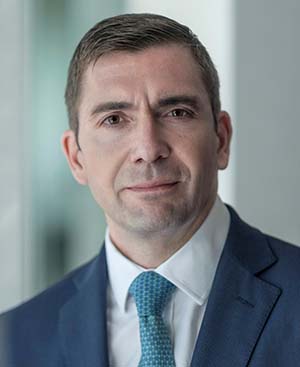 Michael Gruener, head of retail Emea at BlackRock
Michael Gruener, head of retail Emea at BlackRock
What role can technology play in the sector?
Over the last 18 months we have entered an ‘era of digitalisation’ and we believe ‘what can be digitalised, will be digitalised’ in the asset and wealth management industry over the next three to five years. This will impact every part of the value chain from front to back.
In our eyes, technology is the enabler for financial inclusion and will allow the industry to provide investment services to more people. This is critical. Countries across Europe are shifting responsibility for retirement from the state and the corporate to the individual, an individual that may not be equipped to deal with this shift. In order to deal with the increased demand and deliver investment services to more people, combining traditional methods, such as face-to-face advice with technology, is key.
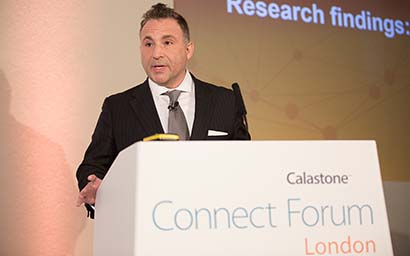 Edward Glyn, managing director and head of global markets, Calastone
Edward Glyn, managing director and head of global markets, Calastone
How will the implementation of blockchain technology affect the asset management industry?
The funds industry still trails other financial services sectors, and the use of manual processes, outdated systems and technologies is commonplace. This has led to a higher cost of distribution, which ultimately impact the end investor. Distributed ledger technology has the power to address these issues by digitising trading activity, creating a fully mutualised marketplace for smoother distribution.
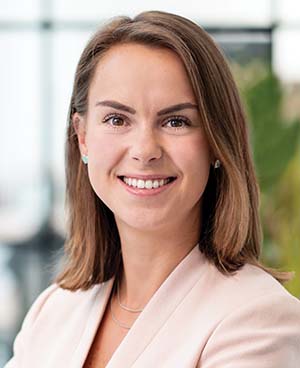 Laura Bailey, founder of Qadre
Laura Bailey, founder of Qadre
How do you expect digitalisation and blockchain technology to affect the asset management industry?
The financial services industry has been built on technology, which today is at best dated and at worst, archaic. In addition, regulatory and operational changes have culminated in a plethora of patches to fix problems, without addressing the core architectural structure, resulting in duplicative, inefficient processes.
Blockchain technology allows us to take a step back and design processes from scratch using a blank sheet of paper. Through redesigning how investors are on-boarded by asset managers, how corporate actions are undertaken and how, through a reduction in the operational cost base on transacting, we have the potential to unlock products, markets and demographics, once thought to be cost-prohibitive.
If we are to be successful in creating a more efficient, transparent and cost-effective asset management industry, it will require an openness and willingness to explore new ways of doing things – a fresh approach. Out with the old and in with the new. The world has awoken to the benefits that new technologies, such as blockchain, bring. There will be an increasing focus from many stakeholders about how best it can be utilised and best adopted. Those who resist change are expected to find their market position weakened in the future, or perhaps even obsolete.
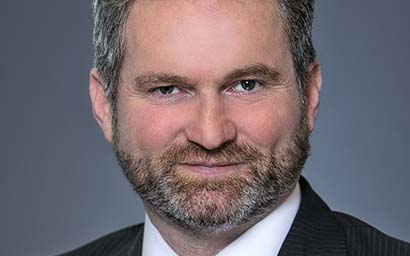 Gerard Walsh, head of development, institutional brokerage, Northern Trust Capital Markets
Gerard Walsh, head of development, institutional brokerage, Northern Trust Capital Markets
What trends do you think we’ll see in investment management throughout the rest of the year?
We’ve observed a great deal of momentum behind the front-office outsourcing trend. This is a result of various long and short-term catalysts, including regulation, changes to roles, responsibilities and risks via the UK’s Senior Manager Regime, transparency, fee pressure, and the hunt for yield and return, combined with increasing levels of automation and technology. There is also a growing focus on cost control. We also expect much more focus on applying artificial intelligence, automation and technology well, as distinct from simply applying technology. There will continue to be a shift towards engaging more deeply with eco-system partners as firms seek to deliver more cost-efficient relationships.
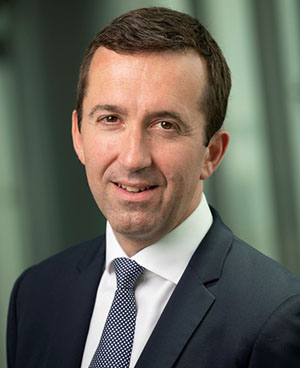 Mathieu Maurier, country head SGSS, Société Générale Luxembourg
Mathieu Maurier, country head SGSS, Société Générale Luxembourg
What future trends do you expect to see in the industry?
With emergence of new technologies and new customer’s expectations, we are currently facing a huge transformation of financial industry, including back-office functions. The next generation of tools, based on artificial intelligence, will extract more value from the data, providing investors and asset managers with predictive models and functions, such as Natural Language Generation. Lastly, we should afford to adapt our value chains to integrate Blockchain solutions as far as they are covered by regulations and a good level of reliability.
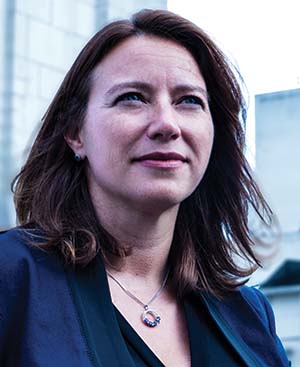 Sherry Madera, global head, industry and government affairs at Refinitiv
Sherry Madera, global head, industry and government affairs at Refinitiv
Which emerging markets are showing promise for the future?
Asia’s emerging markets are particularly interesting now as China and India continue to open up their financial systems to the rest of the world. This allows ASEAN countries and others in the region to benefit as well. Another driver for emerging markets opportunity in the near future is the renewed focus on building sustainable and investable infrastructure, including the Belt & Road initiative. The focus from multilateral development banks and the IMF to mobilise private capital is a great opportunity to innovate in this space. This will put the spotlight on infrastructure as an asset class across multiple emerging markets.
What are the hot topics you’re looking forward to discussing?
As active managers search for new alpha, how can data connect different markets so funds can seek new opportunities? How do we turn the regulatory challenge into opportunity? MiFID II is the perfect example, there is so much new transparency data but most firms are struggling to find value in the data. What do we need to change to unlock that opportunity? Finally, how do we work together better to solve global challenges, like financial crime which has a huge impact on people’s lives?
The conference runs from June 25-27 at the Bella Centre, Copenhagen.
Click here to learn what other key industry figures had to say ahead of the event.
©2019 funds europe





